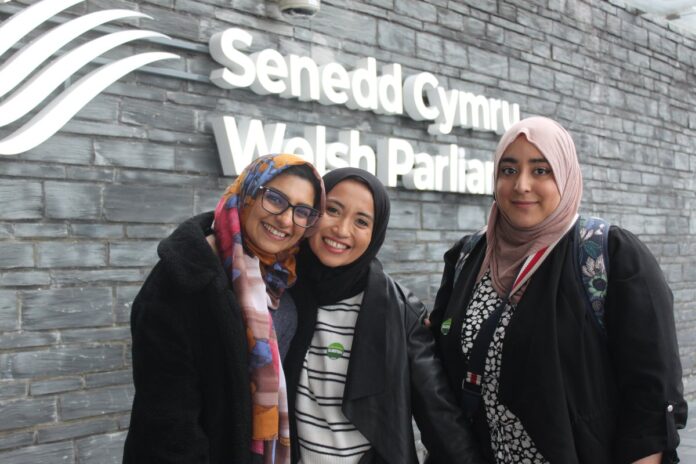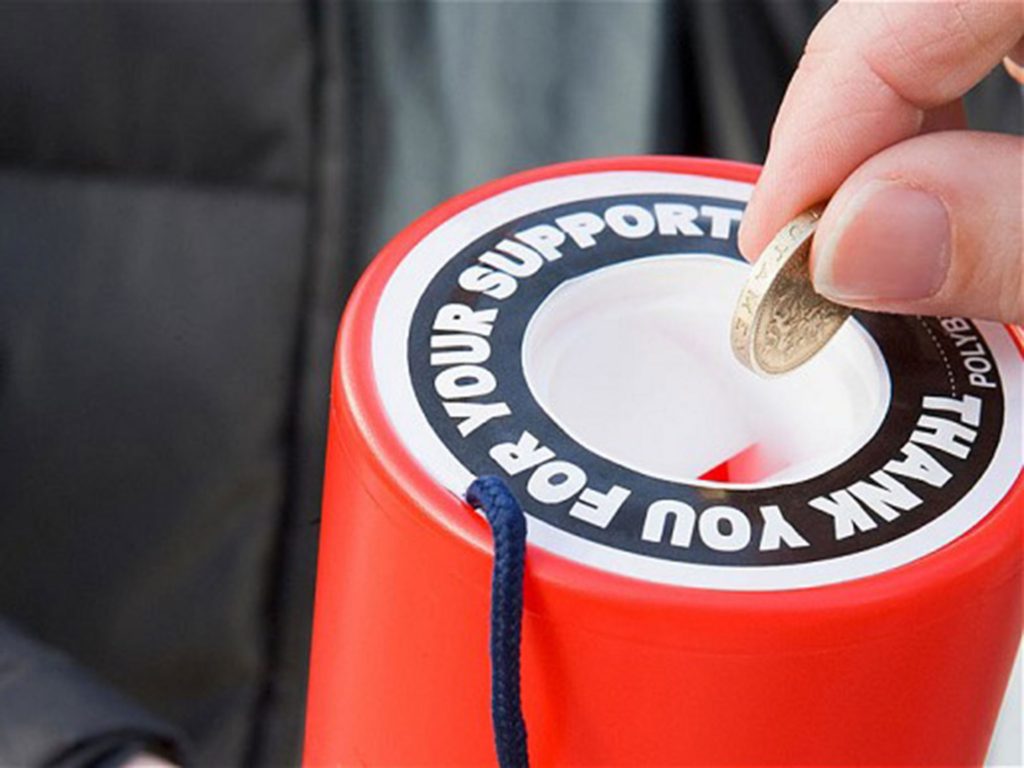November is Islamophobia Awareness Month which this year is focussing on telling positive stories about Muslims in an effort to counter negative Islamophobic stereotypes.
Since its conception in 2012, every November has marked Islamophobia Awareness Month (IAM). Foremost, IAM is a campaign dedicated to highlighting the prevalence of Islamophobic prejudice in British society. Yet, it also aims to challenge the stereotypes surrounding Muslims by showcasing the positive contributions that they have made, and continue to make, to our society.
In recent decades, the political discussion in Britain around Muslims, particularly on the right, has been characterised by a series of toxic themes: jihadists, grooming gangs and segregated communities. Britain’s non-Muslim majority have long been presented with a deeply warped picture of Muslims, and the roles that they play in society.
Often, Muslims are framed as living “separate lives” due to an alleged refusal to “integrate” into society. We are told that they reject “British values.” At the same time, the almost ceaseless demonisation of Islam by certain right-leaning media pundits and politicians has left some young Muslims feeling estranged from the socio-cultural fabric of this country.
IAM is part of an organised effort to remedy this stagnant status-quo, by pushing back against the portrayal of Muslims as somehow being outside of mainstream Britain. Muslims have played a significant role in the history in the UK, and they have made enormous contributions to industry and culture. By emphasising these contributions, we hope to decolonise ethnocentric approaches to our identity and find a shared history that defies the frequently depicted dichotomy in mainstream media.
IAM is not just confined within the Muslim community; rather, it is an inclusive and collective effort that transcends boundaries and unites diverse segments of society, working hand in hand with Police and Crime Commissioners (PCC), local councils, journalists and local media, councillors and local MPs, mosques, universities, schools, community organisations, and others in the public, private, and academic sector a to promote active engagement and understanding between communities. In the realm of IAM, it is not an “us” versus “them” scenario; we are, in fact, a united “us.”
The theme for IAM 2023 is #MuslimStories. The rich history and excellent work being done by British Muslims throughout empowers them to share riveting narratives, ones that hold the potential to trigger transformative change in the perception of Islam and Muslims within our society.
Subscribe to our newsletter and stay updated on the latest news and updates from around the Muslim world!
As such, this initiative encourages British Muslims and non-Muslims alike to come forward and share their stories, or stories about Muslims, each a powerful instrument for engendering meaningful and enduring change. The potent force of storytelling emerges as a compelling means to counter misinformation and prejudice.
Below are a few existing stories detailing the excellent contributions of Muslims to British society:
Historically, the first significant presence of Muslims in the UK can be dated back to the 1700s in the form of Yemeni sailors who were working in the British merchant navy, with numbers expanding over the coming centuries – rebutting any notion that the arrival of Muslims in the UK was something recent. Moreover, an estimated 2.5 million Muslim soldiers fought on behalf of Britain in World War I, and a further estimated 600,000 to 1 million fought during World War II.
Furthermore, during the post-war years, many Muslims, especially from the Indian subcontinent, relocated to the UK to aid in revamping the infrastructure and fill valuable roles that had been impacted by the war. For example, during the 1960s, Muslim doctors from India, West Pakistan, and East Pakistan (now Bangladesh) came in significant numbers to support the NHS following an appeal by the then Health Minister, Enoch Powell.
At the time, these doctors were applauded by Powell, who declared that they “provide a useful and substantial reinforcement of the staffing of our hospitals and who are an advertisement to the world of British medicine and British hospitals.” The UK further benefited from the experience that these incoming doctors had acquired within health institutes in their nations of origin, thus increasing British medical expertise and capability.
Contributions to the NHS did not end there. As of September 2019, 42,202 Muslims were employed and utilised in NHS trusts and clinical commissioning groups in England, with Muslims constituting 6% of the 712,073 staff who revealed a religious belief. Around 31% (12,966) of the 42,202 Muslim staff were employed in specialist positions, such as doctors, compared with a general NHS rate of 10%.
Meanwhile, Muslim doctors make up over 21% of the 60,178 doctors who declared a religious belief. Therefore, for a community that makes up no more than 6.5% of the national populace, Muslims are unquestionably overrepresented within specialist occupations in the NHS and are making incredible contributions.
This overrepresentation is not just a numerical anomaly; it reflects a profound commitment to the well-being of the nation. Nowhere is this dedication more evident than during the peak of the COVID-19 crisis, where many Muslim NHS staff found themselves on the front lines, tirelessly combating the virus. These heroes, driven by a sense of duty and compassion, played a pivotal role in stabilising the unprecedented health crisis. Some paid the ultimate price, sacrificing their own lives in the noble pursuit of aiding others. Their selflessness and courage in the face of adversity underscore the indelible mark that Muslim healthcare professionals have left on the NHS and the nation as a whole, embodying the true spirit of service and sacrifice.
Moreover, British Muslims are consistently at the forefront of charitable endeavours, contributing an estimated £100 million during the holy month of Ramadan, a testament to their unmatched generosity. Moreover, British Muslims have also undertaken campaigns to feed the homeless during Ramadan. Around 20,000 hot meals were distributed by Muslims to the homeless across London and Manchester in 2018, and similarly, the homeless in Birmingham were also served during Ramadan of 2019. Indeed, such instances have been consistent on a yearly basis.
The remarkable generosity exhibited by British Muslims is not merely a testament to their financial capability, but more importantly, it reflects the deeply ingrained values of compassion and solidarity within the community. By distributing hot meals to the homeless in major cities like London, Manchester, and Birmingham, British Muslims exemplify a commitment to alleviating the struggles of the most vulnerable in society. Beyond the sheer numbers, this charitable initiative symbolises a bridge between faith and action, emphasising the practical manifestation of empathy and kindness.
More significant contributions by British Muslims, particularly in the fields of arts, media, and sports, can be viewed and accessed via the various IAM packs and exhibitions.
Despite these significant contributions, members of the Muslim community continue to be overwhelmingly painted in a negative light. A disheartening statistic reveals that over a third of Britons view Islam as a threat to the “British way of life.” Similarly, a previous poll conducted by the advocacy organisation Hope Not Hate found that 35% of British people perceive Islam as incompatible with British values.
In light of these stark realities, and the ongoing tragic situation in Gaza which has spiked Islamophobic sentiment throughout Europe, it becomes paramount to participate wholeheartedly in IAM 2023 and give voice to your #MuslimStories. Extraordinary feats are being achieved by Muslims across the length and breadth of the country, both as individuals and as vibrant communities.
These remarkable contributions deserve unambiguous recognition and celebration, thereby serving as an antidote to the prejudiced perceptions that persistently shroud British Muslims. It is through the transformative power of #MuslimStories that we strive to rewrite the narrative and unveil the extraordinary tapestry of Muslim contributions.
You can find more information about Islamophobia Awareness Month here.





















